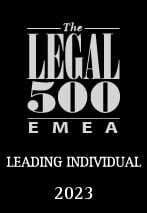MOLECULAR PLANTATIONS – THE NEXT STEP IN THE FIELD OF ALT PROTEIN
Publication date: May 18, 2023
Molecular farming is a field of biotechnology that promotes the use of plant crops as biofactories for the production of high-value bioproducts using biotechnology. The term also includes the genetic modification of agricultural products for the production of proteins for commercial and pharmaceutical purposes. The transformation of non-viable crops into efficient biofactories is aimed at an effective solution in the context of a modern bioeconomy and at the same time supporting a sustainable rural development strategy through, among others, the best possible synthesis of plants with drugs.
The term “molecular farming” was coined in 1986, but it took three decades for the FDA (Food and Drug Administration) to approve the first plant-derived therapeutic protein. Carrot cell protein turned out to be a valuable tool in the treatment of a rare genetic disorder, which is Gaucher disease, which causes abnormal breakdown of fats in the human body, and therapeutic protein of plant origin helps restore proper metabolic function (research by the Israeli pharmaceutical company Protalix BioTherapeutics has shown this fact). Plant-derived pharmaceutical products have received a lot of attention in recent years due to the increasing demand for clinical applications in recent years.





